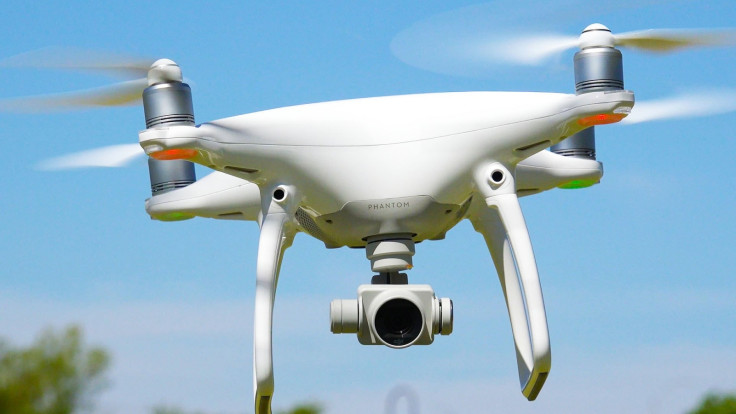DJI: Drone industry really needs centralised database of flight restrictions across Europe

The world's largest consumer drone manufacturer DJI is calling for Europe to work together and collectively send data on no-fly zones and flight restrictions to a centralised database in order to improve unmanned aerial vehicle (UAV) safety.
"The biggest obstacle in drone regulation in Europe is that there is no harmonisation between the countries. People bring our products on holiday with them, when they go skiing in the Alps for example, but they need to know about temporary flight restrictions," DJI's European policy lead Christian Struwe told IBTimes UK.
DJI already has a geofencing system in place called GEO, whereby drone pilots are sent real-time information about temporary flight restrictions from the DJI Go app, as well as cautions about flying UAVs in restricted areas around airports, prisons and power plants.
The system comprehensively prevents users from taking off next to an airport, and if users feel they have authorisation to fly in any of the restricted zones, they have to get their accounts verified with DJI and prove that they have been given an exemption by authorities in their country.
"We have geofencing in place but at the moment it is not flexible. For every single restricted area in our system in the world, we receive complaints from tens of companies claiming they have been given authorisation to fly in that area, but how do we judge who is allowed to give the authorisation?" asked Struwe.
"We need centralised servers delivering all the no-fly zone data to us that everyone can access for the whole of Europe. Neither our partners or competitors currently have the data for their geofencing solutions either."
In April, a British Airways flight was approaching Heathrow Airport when something hit the front of the plane. The pilots reported the incident, leading to an investigation by airport police and the Air Accidents Investigation Branch, as well as widespread media coverage about drone safety.
In the end, UK transport minister Robert Goodwill admitted to the House of Lords that the supposed "drone" might actually have been a plastic bag, and because of this, he would not be pushing for tighter restrictions against the use of consumer drones.
However, this is an issue that DJI definitely does not want to see pop up again and it feels that majority of its users are conscientious and follow the rules. Struwe stressed: "99.9% of our customers do want to stay safe and follow the rules.
"We encourage governments not to regulate simply out of fear or due to sensationalised news coverage. We need better, more proactive communications between governments and us, the drone industry."
© Copyright IBTimes 2025. All rights reserved.






















